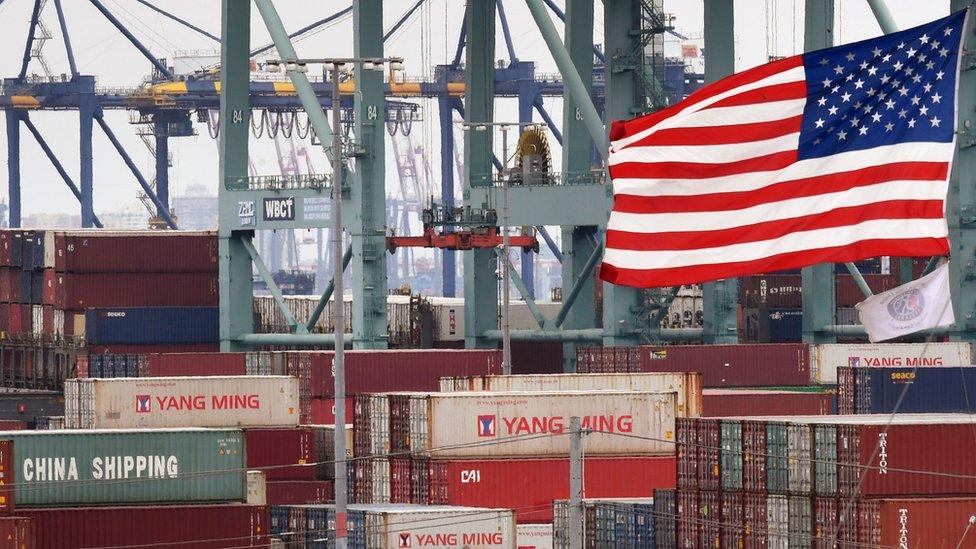China President Xi's economic reform promises underwhelm
- Published
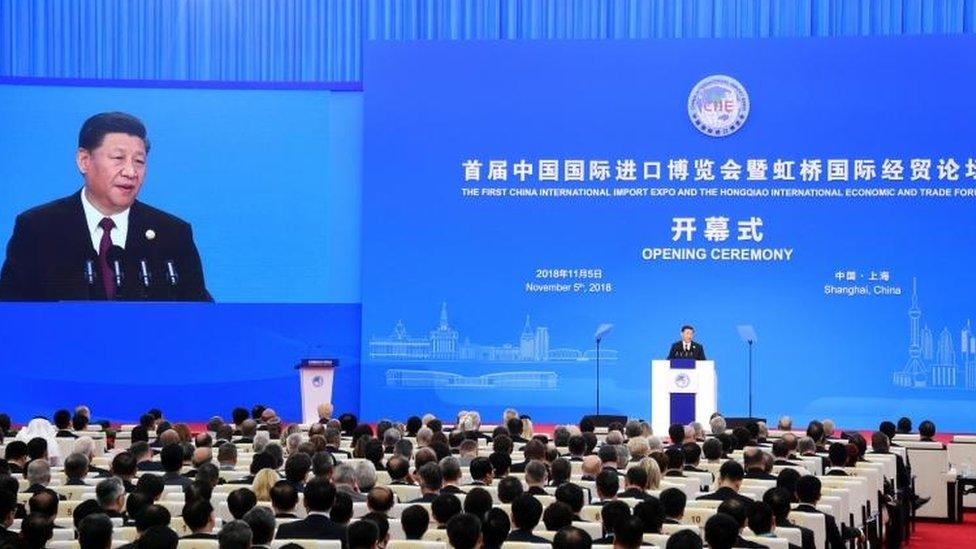
After meeting President Trump in April last year, China's President Xi Jinping announced a big idea to show the world, and especially the White House, that China's economy was opening up: the China International Import Expo.
When he opened the huge gathering on Monday in Shanghai, "opening up" was a constant refrain in his 30-minute address.
There's no doubt that the 3,000-plus foreign firms here this week will do good business. President Xi's association with the event will make it so.
One senior diplomat told me the Chinese hosts could be unveiling a total of $150bn in new import deals by the week's end. (The UK is likely to announce £2bn or $2.6bn worth of deals).
All of this is designed to show that Beijing is addressing one of President Trump's biggest bugbears - China's massive trade imbalance with the US.
But the US government has given this event the cold shoulder. There are no high level officials attending.
With talks stalling to try to prevent a further escalation in the trade war, the message from Washington is that the Shanghai gathering is merely window dressing.
It doesn't address the US's core concerns about the trade relationship, structural inequalities and its growing anger over China's alleged theft of intellectual property.
Tangible changes
Plenty of big American firms, such as Ford, Boeing, Qualcomm and Google, have come to the expo. None of these wanted to talk to the BBC about the apparent business bonanza.
All of them want to be in China, with access to the world's biggest market. But some are also planning to shift supply chains or manufacturing bases if the trade war goes on.
There were some tangible changes announced in Mr Xi's speech.
He pledged to lower import tariffs and to change foreign equity ownership rules in the education and medical services sectors, so that firms from abroad can own more of the companies they set up here. (This could be particularly good for the UK which is strong in these service sectors.)
There was also a "sincere commitment" to open China's markets further, on China's terms.
And there was certainly no sign that China is about to cave in the trade war.
All of this is familiar to anyone who has listened to Communist Party leaders' speeches in recent years.
It's a version of the address Mr Xi gave at Davos early last year where he framed himself and his country as the new champions of globalisation and open, free trade.
But the economic environment is changing.
Recent GDP figures confirmed growth in China's economy is slowing down.
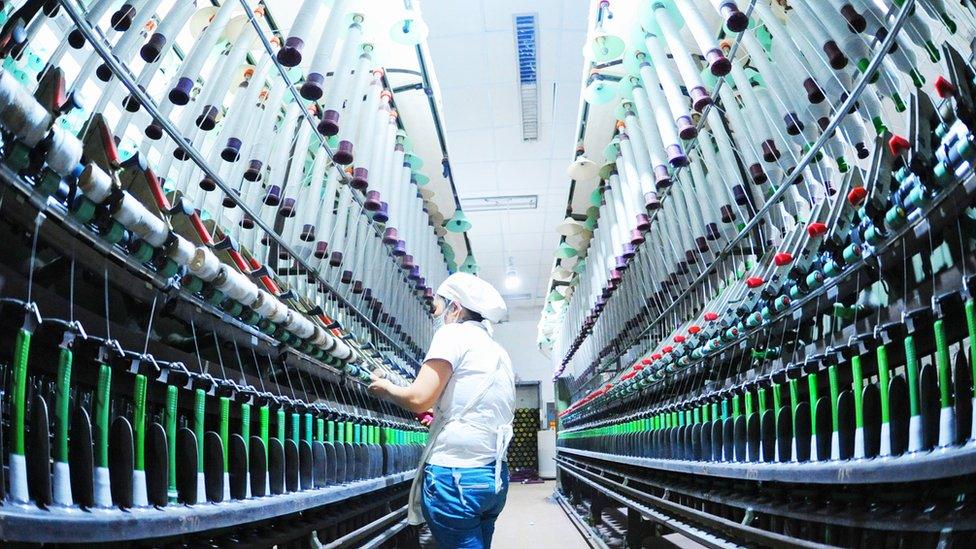
Last week, China's leader chaired a meeting of the country's most senior leaders in which they acknowledged that "downward pressure" on the economy was "increasing".
He recently also sought to reassure the country's top private business figures of his "unwavering" commitment to the private sector (where most new jobs are created here).
Back in present-day Shanghai, President Xi had only committed to piecemeal reform by the time he walked away from the podium.
That commitment was also embellished with a very familiar metaphor.
Appearing to refer to the trade war as a "battering storm" he said the Chinese economy "is a sea".
Storms can "overturn a pond" he said, but "never" a sea.
- Published5 November 2018
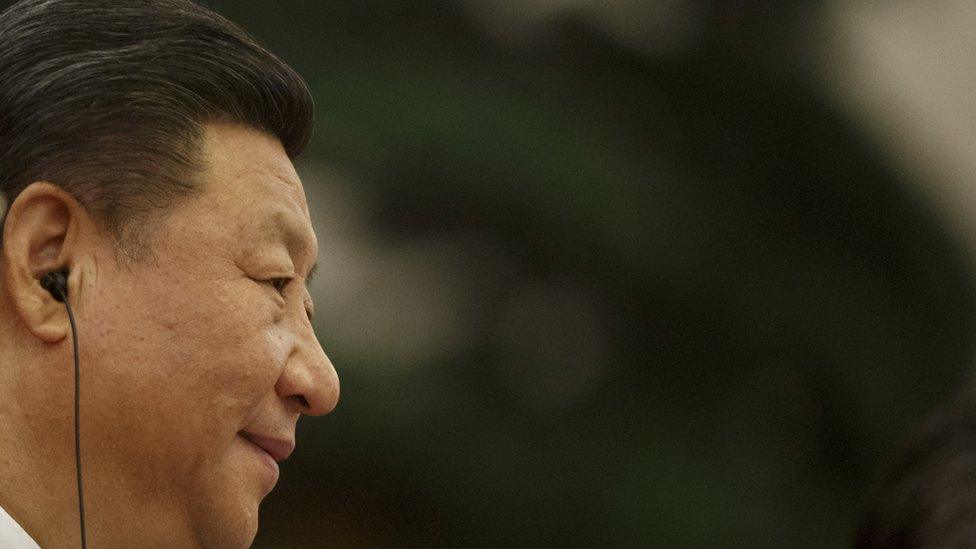
- Published18 September 2018
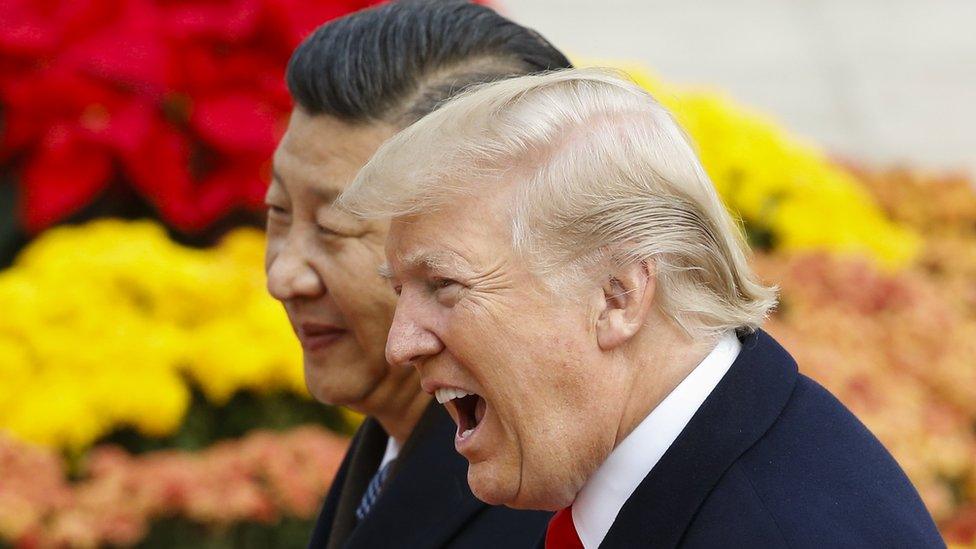
- Published26 October 2018
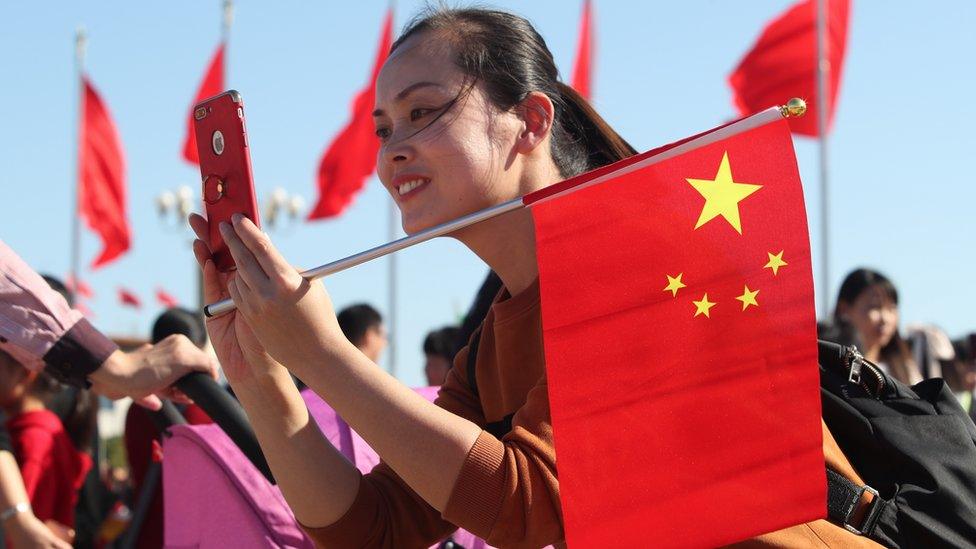
- Published16 January 2020
